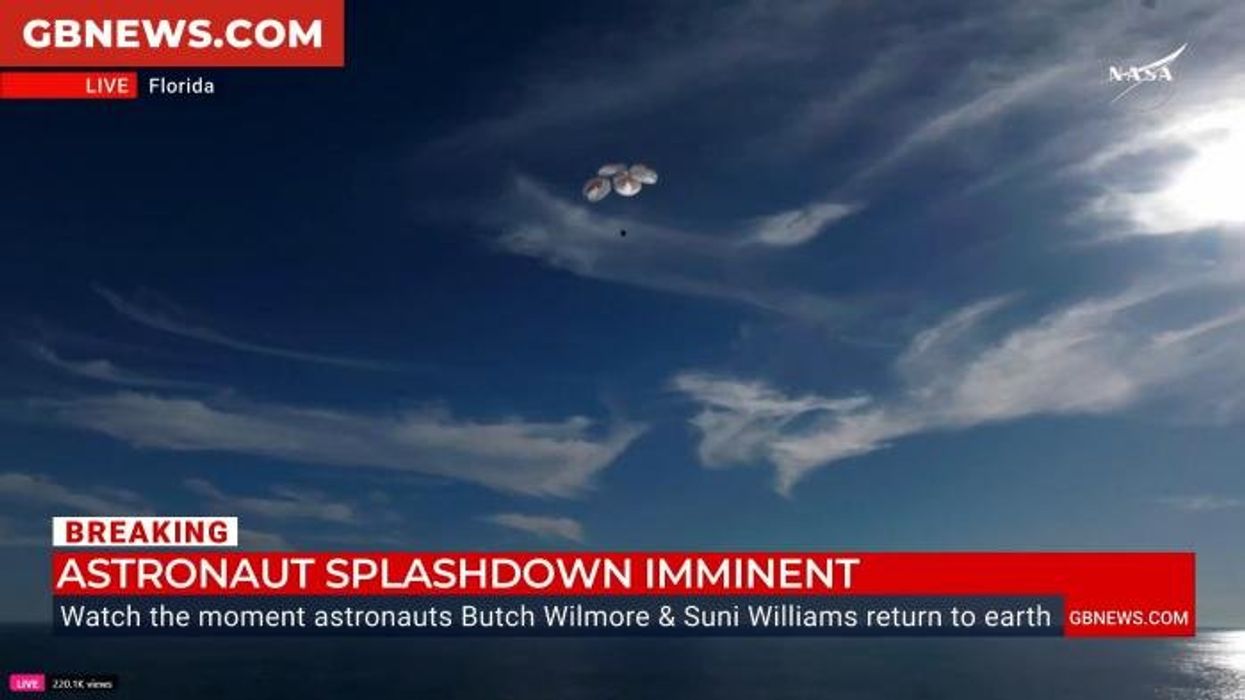Aliens may be ignoring us because they're too BORED, claim researchers

Dr Robin Corbet's paper attempts answers one of astronomy's biggest questions - 'Where is everybody?'
Don't Miss
Most Read
Latest
A Nasa researcher has suggested aliens may have got bored of trying to communicate with Earth and given up.
The new hypothesis addresses the longstanding puzzle known as the Fermi paradox.
The paradox, coined by Italian-American physicist Enrico Fermi, questions why no convincing evidence of intelligent life has emerged despite the galaxy containing hundreds of billions of planets.
Or, as Professor Fermi phased it at a conference in Los Alamos in 1950, "Where is everybody?"
Rather than proposing elaborate scenarios involving hyper-advanced beings or Earth being designated as an off-limits cosmic sanctuary, the theory embraces what its author calls "radical mundanity".
The concept suggests extraterrestrial civilisations explored their surrounding space, discovered nothing interesting, and subsequently abandoned their efforts to make contact.
This would render them nearly impossible for humans to detect.
Senior research scientist at the University of Maryland Dr Robin Corbet, proposed the theory while working at Nasa's Goddard Space Flight Center.

The theory suggests aliens have gotten bored and given up on finding us
|GETTY
Dr Robin Corbet developed this theory after examining various explanations for the cosmic silence.
His proposal envisions extraterrestrial societies whose technological advancement has reached a ceiling only slightly beyond human capabilities.
"The idea is that they're more advanced, but not much more advanced. It's like having an iPhone 42 rather than an iPhone 17," Dr Corbet explained.
"This feels more possible, more natural, because it's not proposing anything very extreme."
LATEST DEVELOPMENTS

Dr Corbet made the theory working at Nasa's Goddard Space Flight Center
|WIKICOMMONS
The hypothesis assumes a Milky Way populated by a modest collection of civilisations lacking the ability to achieve large-scale cosmic engineering or the motivation to pursue such endeavours.
According to Dr Corbet's paper, these civilisations would find it challenging to maintain high-powered laser beacons for the millions of years required for detection.
"They don't have faster-than-light, they don't have machines based on dark energy or dark matter, or black holes. They're not harnessing new laws of physics," Dr Corbet stated.
The enormous power demands and response times spanning millions or billions of years would discourage extraterrestrials from operating such technology.
Additionally, if numerous civilisations exist throughout the galaxy, Earth would likely appear unremarkable amongst countless similar worlds.
The scientist noted that after dispatching robotic probes and receiving data, alien civilisations might lose interest in the findings and abandon space exploration altogether.
Academic experts have expressed mixed reactions to the radical mundanity principle.
Professor Michael Garrett, director of the Jodrell Bank Centre for Astrophysics, appreciated the "fresh perspective" whilst raising concerns about the theory's assumptions.
"It projects a very human-like apathy on to the rest of the cosmos. I find it hard to believe that all intelligent life would be so uniformly dull," he remarked.
Garrett suggested any technological ceiling might exist far beyond current human achievements.
Professor Michael Bohlander from Durham University proposed that unexplained aerial phenomena could already represent contact attempts.
"If only a small percentage of those objects were found not to be man-made... then the question posed by Fermi, 'Where is everyone?', could be answered empirically," he said.











